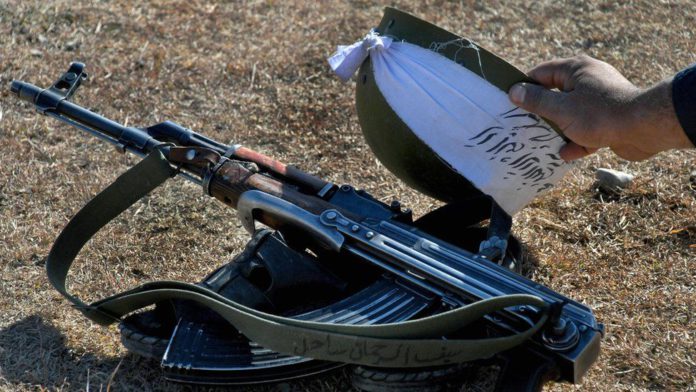
The Pakistani Taliban has announced an indefinite ceasefire with Pakistan’s government after talks brokered by the Afghan Taliban government.
The Pakistani Taliban (TTP) said substantial progress had been made at the talks in Kabul, and the truce extended until further notice.
A Pakistani government official said the talks were moving in a positive direction, AFP news agency reports.
The TTP has been fighting Pakistan’s armed forces for years.
The TTP – Tehrik-i-Taliban Pakistan – wants to impose its own ultra hard-line interpretation of sharia law in Pakistani regions along the border with Afghanistan. The mountainous area has long been a hotbed of militant activity.
The group has enjoyed a close but ambiguous relationship with the Afghan Taliban, reports the BBC’s Secunder Kermani in Islamabad.
Since the Taliban took control of Afghanistan last year, the TTP has stepped up its attacks in Pakistan, killing dozens of government soldiers in 2021.
The ongoing talks in Kabul are between the militants and a jirga, an assembly of Pakistani politicians and tribal elders.
It is not clear what the terms of any settlement could be.
A truce previously agreed between the two sides for an Islamic festival expired on 30 May. In the past, similar agreements have quickly broken down.
The TTP was founded in 2007 in response to a Pakistani military operation clearing the Lal Masjid mosque in Islamabad where a radical preacher held sway. The group’s founder, Baitullah Mehsud, was once considered close to Pakistan’s intelligence agency, the ISI.
According to Amira Jadoon, an assistant professor at the US Military Academy at West Point, the links between the Afghan and Pakistani Taliban date back to the 11 September 2001 attacks in the US and the fall of the first Taliban government in Afghanistan later the same year.
After its formation, the TTP went on a rampage against the Pakistani state, targeting both civilians and security forces. The Pakistani army retaliated and expelled the TTP leadership to Afghanistan, where it has been based since 2015, conducting “low-intensity” warfare against Pakistan.






